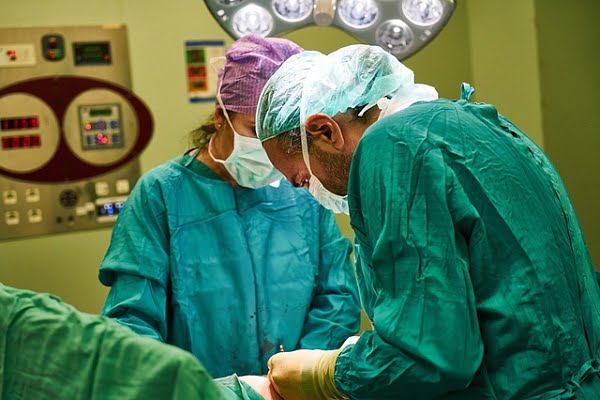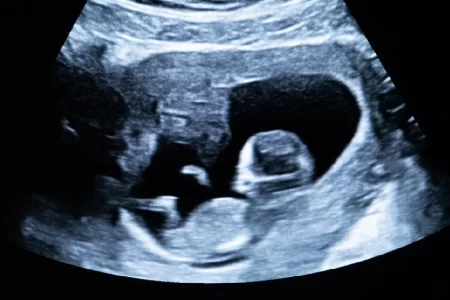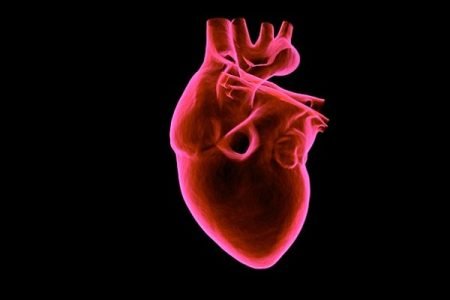
Ventricular septal defect (VSD) surgery
A VSD surgery is a type of heart surgery which is performed to correct a hole between the left and right ventricles or the lower chambers of the heart. This hole allows oxygen rich blood to leak from the left ventricle to the right ventricle of the heart which causes extra workload on the right side of the heart since more than necessary blood is flowing through the right ventricles to the lungs.
During a VSD surgery, a surgeon reaches to the heart by making an incision in the front of the chest and dividing the breastbone. During the surgery, a machine is used to pump blood and act as the lungs. Then the surgeon uses a patch to close the hole between the ventricles. With time as the child grows his/her own cells grow over the patch, anchoring it in place even more.
There are two types of surgeries available for VSD repair:
- the intra-cardiac technique, and
- the trans-catheter technique
The selection of any particular surgical technique is determined based on the nature of the VSD and associated side effects on the patient’s heart and lungs.
The intra-cardiac approach is the most commonly used technique and a procedure of choice for many of paediatric surgeons for a VSD closure. It is an open heart surgery and is done while the patient is under cardiopulmonary bypass. A patch of fabric or pericardium is sewn over the VSD to close it completely and permanently.
Pericardium is the normal lining around the outside of the heart. With time, normal tissues grow and cover the patch fixing it permanently.
Another option for VSD closure surgery is trans- catheter technique. VSD repair or VSD closure of minor defects can be corrected in cath-lab under the radio-imaging techniques using a catheter.
This option is minimally invasive in nature and uses a long, flexible tube called catheter inserted in the groin through a blood vessel instead of an open heart surgery. It has faster recovery time than an open heart surgery.
More: Ventricular Septal Defect (VSD): Causes, Symptoms, Diagnosis, Treatment
Why might your child need a ventricular septal defect surgery?
The purpose of this hole in heart surgery or VSD heart surgery is to ease symptoms caused by the VSD and to prevent future symptoms.
Not everyone with a VSD needs to have VSD closure surgery. Many of small VSDs do not cause any symptoms as they do not increase any significant workload on the heart. Generally, very small VSDs close naturally on their own. Your child’s doctor may wait to see if the VSD closes on its own before planning a VSD repair surgery especially if your child is very young.
VSD closure surgery is needed if your child has a larger VSD. Children with larger VSDs fail to gain weight normally and also show other symptoms like fast and hard breathing than normal. A large, unrepaired VSD can precipitate further complications such as elevated pressure in the blood vessels in the lungs and decreased oxygen levels in the body.
Children with a large VSD are often advised for some sort of repair even if they don’t have symptoms yet. Early repair intervention can prevent long-term damage to the lungs.
What are advantages and risks of a ventricular defect surgery?
VSD closure surgery is difficult and intricate but once done successfully can offer a new lease of life to the patients. Diagnosis and treatment of VSD has greatly improved over the last few decades and the procedures have great success rates.
After a VSD surgery, patients can lead a normal healthy life without any complications but complications do appear sometimes.
Specific risk of a VSD repair surgery may vary based on age, the size of the defect, and other health problems. Some of the possible risks may include:
- Complications from anaesthesia
- Blood clot leading to stroke and other problems
- Excess bleeding
- Abnormal heart rhythm which may cause death in rare cases
- Infection
- Heart block which can make a pacemaker insertion necessary
Late complications of a VSD surgery are also be possible but are very rare and may include:
- Problem with heart valves
- Patch getting loose which may require another surgery
You should consult your child’s doctor about the specific risk factors for your child related to the procedure.
What happens after a VSD surgery /operation?
You should ask your child’s doctor about what may or will happen after a VSD surgery. Generally, a surgery is the permanent cure of ventricular septal defect. Any kind of activity restriction is not needed after a VSD surgery.
You can usually expect the following after the procedure in the hospital.
- Your child will take several hours in the recovery room or the doctors may take him or her straight to the intensive care unit
- Heart rate, blood pressure, oxygen levels, and breathing of your child will be closely monitored by the healthcare team
- If needed, your child will be prescribed with pain medicine
- The doctor may recommend follow-up tests, like an electrocardiogram or an echocardiogram
- By the second day of the procedure your child should be able to move
- The doctor may discharge your child from the hospital after a week or so
- You should ask the healthcare provider what medicines your child needs to take at home
- You should make sure that your child avoids activities that might result in blows to the chest
- The stitches will be removed in a follow-up appointment
- If your child has increased swelling, increased bleeding or drainage, a fever, or severe symptoms you should immediately consult the healthcare provider
- You should make sure to follow all the instructions your child’s doctor gave you about medicine, exercise, diet, and wound care
- Your child may also need some antibiotic to help prevent any kind of infection
- You should have a follow up appointment with a cardiologist for sometime after the procedure
What is the VSD surgery success rate?
Severe complications after a VSD surgery are very uncommon and the VSD surgery success rate is very high. Most centers have reported an operative mortality rate of less than 1% if the VSD is the only defect and the heart is functioning normally. In very rare cases a second procedure is necessary to repair the defect and a pacemaker insertion is needed for normal functioning of the heart after the surgery.






